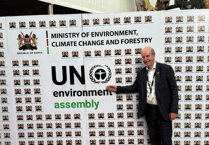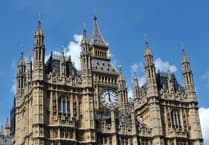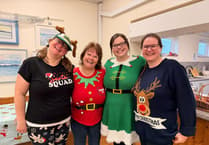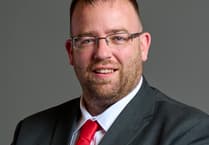THE early years of the 20th Century were a golden age for poetry and music around the forest and Gloucester.
For a time before the First World War, the organ loft of Gloucester Cathedral was the training ground for three important cultural figures.
These were the composer and poet Ivor Gurney, the composer Herbert Howells and the composer, actor, playwright and impresario Ivor Novello, whose place in musical history would have been assured by just one of his compositions, the patriotic war anthem ‘Keep the Home Fires Burning’.
Howells was from the Grammar School at Lydney, Novello from Cardiff via Magdalen College School Oxford, and Gurney was the Gloucester poet and composer.
All three were pupils of the distinguished Gloucester Cathedral organist, choirmaster and early director of the Three Choirs Festival, Sir Herbert Brewer, who in his long career worked with important figures in 20th century music, including Edward Elgar, Hubert Parry, Ravel and Sibelius. That group of young artists in music and literature also included the ‘Forest Bard’ Will Harvey, who started his legal career in an office close to the Cathedral, and whose friends Gurney and Howells set some of his verses to music.
It’s strange that this group of poets seem to have had no connection with a parallel colony of poets who co-existed with them in Gloucestershire at that time. This literary coterie flourished to the north of the Forest area, and became known as ‘The Dymock Poets’. These poets wrote a lot about Dymock, but their allegiance was rather to Herefordshire than to Gloucestershire, and their poetic references are to the rural areas of Ledbury and the Malvern Hills.
One Gloucestershire reference in the poetic output of the Dymock poets was in Edward Thomas’ famous poem ‘Adlestrop’, in which he captures a moment in time when the train from London to Dymock comes to an unexpected stop at Adlestrop station in the Cotswolds. In those days both Adlestrop and Dymock had railway stations, which survived until the 1960s.
GCE students of English Literature in the 1960s may also remember ‘The Road not Taken’, a poem by the American Dymock poet Robert Frost, which may describe a walk in the woods around Dymock, and the visiting poet Rupert Brooke, who predicted his death in his poem ‘The Soldier’ asserting that there will be ‘some corner of a foreign field, that is forever England’.
The Dymock poetry movement faded away towards the end of the war, when Thomas and Brooke were killed in action, and all the poets moved away from the area. Frost went back to America, but his literary career continued for another 45 years, and he recited one of his poems at the inauguration of President Kennedy in 1961. Eleanor Farjeon, another member of the group, became a prolific writer of children’s literature in a career that also extended into the 1960s.
They are still commemorated by the Friends of the Dymock Poets, and the FW Harvey Society remembers Will Harvey. The logo for the Harvey Society is a soldier’s helmet on a pencil outline of a duck, which brilliantly brings together the poet as a soldier, and as a poet, the wonderfully crazy ‘Ducks’ poem, being perhaps his best known work.





Comments
This article has no comments yet. Be the first to leave a comment.